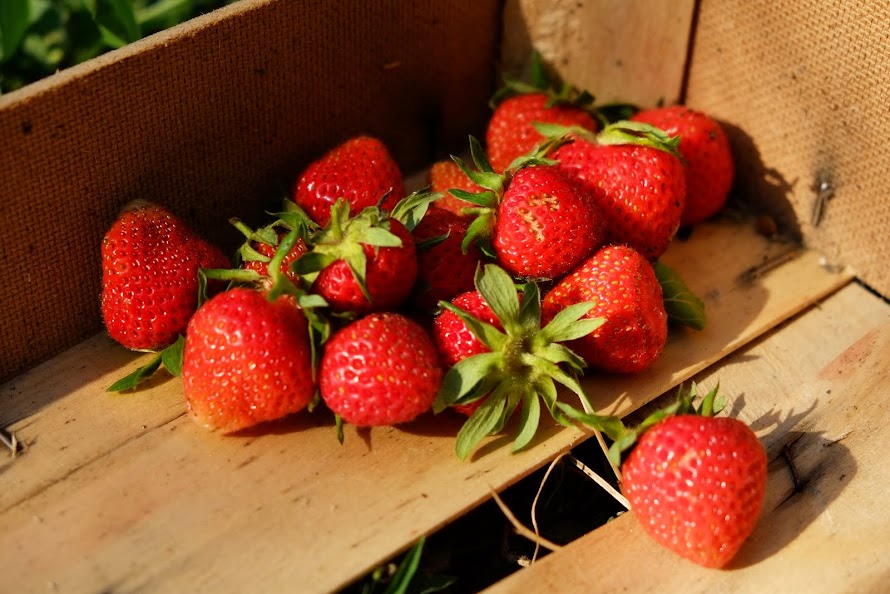As a Christmas present I got a book talking about athletic nutrition. Being a vegetarian who loves to do sports, it struck me that often the book suggested to eat meat as the main source of protein. Other protein sources were mentioned, but especially the quality of vegetable protein was questioned. The book pointed out that an athlete needs a lot of protein to grow and maintain muscle tissue, which makes protein a big part of an athlete’s diet and I agree. At the same time, I think that this issue is more complicated than what the book shows.
Fundamentally, protein made up of amino acids. There are 20 different amino acids, of which 12 the body can produce itself, the rest eight have to be ingested. Because of this, these eight are called essential amino acids. As a vegetarian, I have looked into how a vegetarian diet differs from an omnivore diet especially when it comes to protein. The only thing that a vegetarian has to make sure to do is to eat from many food groups, that is to say a vegetarian has to combine different protein sources to get all the essential amino acids, while a meat eater can get all of them from just meat. Eating from many food groups is very easy, everyone practically does it already.
Thus, feeling a little bit skeptical about meat’s superiority as a source of protein, I decided to look into what is being said about different sources of protein and learn about them in a deeper level. As a result I found a very interesting site in the Internet focusing on protein as a supplement to normal daily protein consumption.
To sum up my findings:
- As mentioned before, meat protein is a very good quality protein, which means that it contains all the essential amino acids. Meat also contain minerals, such as iron.
- In addition to protein, meat contains a lot of calories, saturated fat and cholesterol. It also often contains pesticides, hormones and antibiotics from the production of meat.
- Fish and seafood contain complete protein with a reasonable amount of fat. Some fish contain healthy omega fatty acids. Still, wild caught fish tends to contain mercury and farm-raised fish dioxins.
- Dairy protein is similar to meat protein as the protein in dairy is good quality but it contains bad fat and cholesterol. A lot of people are also allergic to milk. On the other hand, dairy contains a lot of calcium and other nutrients.
- Eggs are said to be the best source of protein as it contains a lot of good quality protein. Eggs also contain a lot of nutrients. Yet, the amount of cholesterol in one egg almost fulfills the daily maximum intake recommendation. Like dairy, eggs are also highly allergenic.
- Vegetable protein is not a source of complete protein. Usually one or two essential amino acids are missing in any given source of vegetable protein. However, it is very easy to get all essential amino acids from vegetable protein by mixing different sources of protein. For example eating grains (bread etc) and beans or lentils (legumes) during the same day will provide all essential amino acids. Also, vegetable protein doesn’t come with saturated fat or cholesterol and often is complemented with fiber, vitamins and minerals.
- Soy is highly allergenic and an intake of a lot of soy protein can inhibit the absorption of some minerals, even though the quantity of protein in soy products is usually very high. (Interestingly other sites say mostly good things about soy protein. This I definitely have to look more into!)
- Pea and rice protein was said to be the best source of protein of all the sources mentioned at the site. The reason was that it contains good quality protein and that it is not very allergenic. Also, the concentration of protein was very high compared to meat and other animal protein.
After reading about protein, I conclude that there are many factors that affect the quality of a protein source. The book concentrated on just the completeness of protein, which is only the tip of the ice berg when it comes to judging the quality of protein. Every protein source comes with more than just the protein: there is also fat, carbohydrates, minerals, vitamins and sometimes unfortunately also unwanted substances. I admit that because I am a vegetarian, I may be somewhat biased when it comes to protein, but I attempted to be neutral to the best of my knowledge and report main pros and cons on each source of protein as they are. Everyone can draw their own conclusions based on what they read.
With all this being said however, in my opinion eating normally will provide you with enough protein for your daily needs. If you do a lot of sports, then one can consider using protein supplements, and in that case I would recommend something that comes with a lot of other good stuff and avoiding those that come with saturated fat and cholesterol. In the end, I think one shouldn’t sacrifice the health of the heart when taking care of the muscles.
If you have any comments or questions, feel free to voice them. I appreciate any suggestions to make my blog better :).
-Anna-Kaisa
Source: http://www.nutribodyprotein.com/protein-types.php
